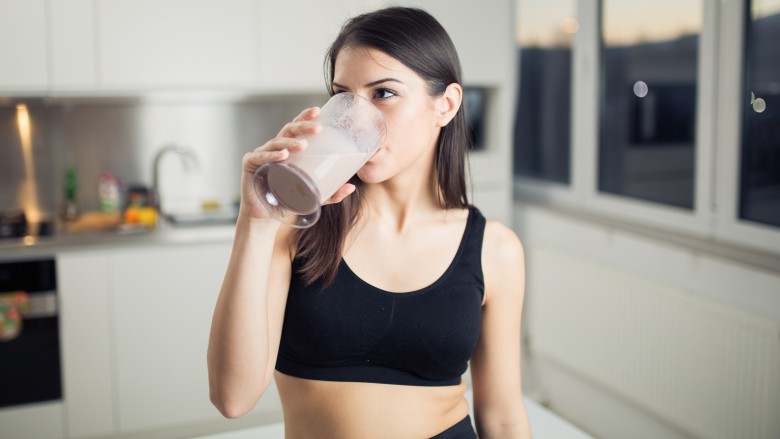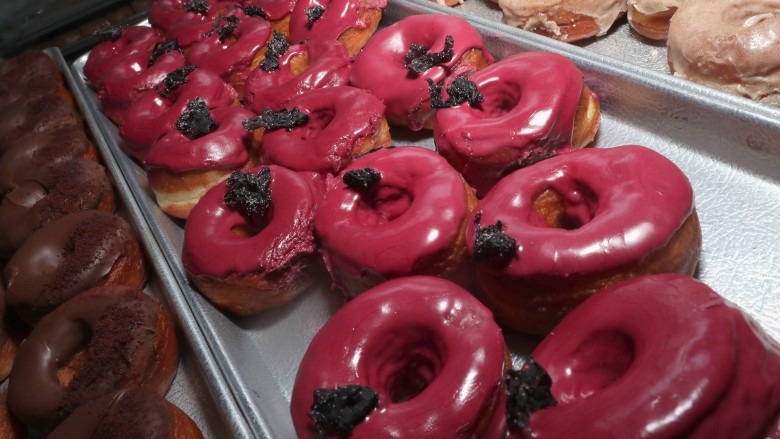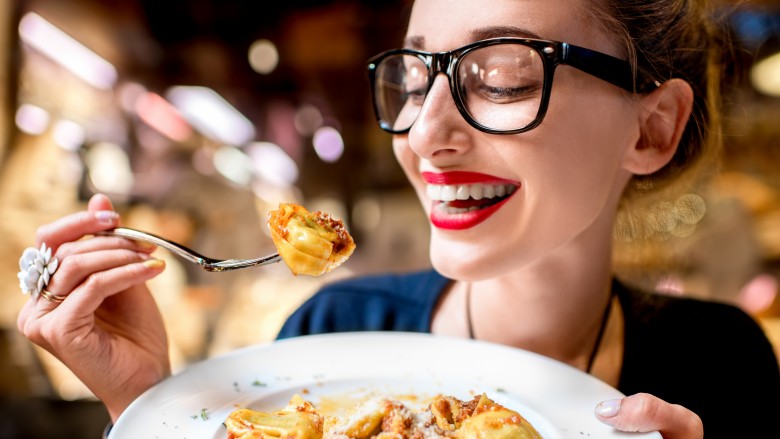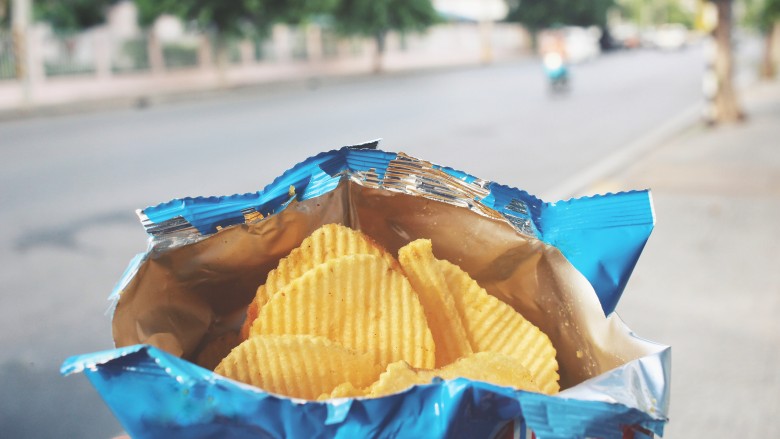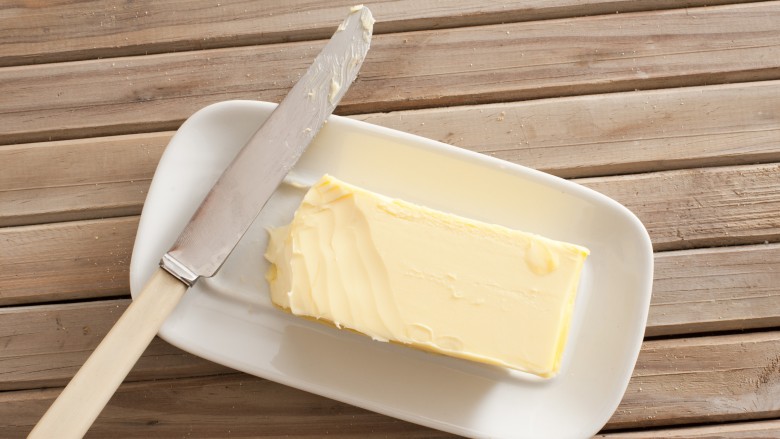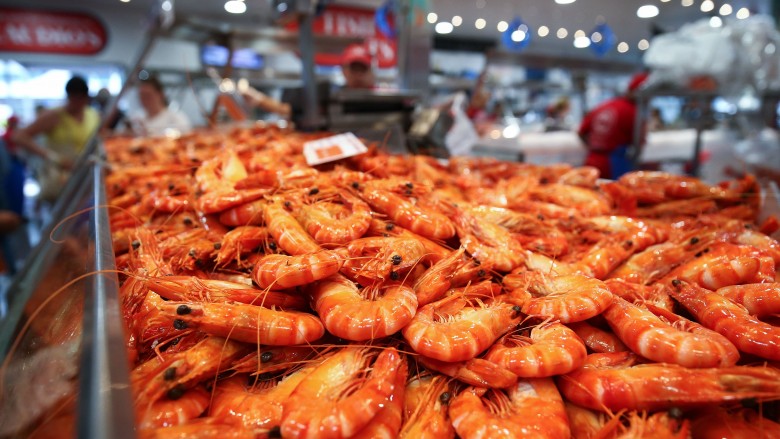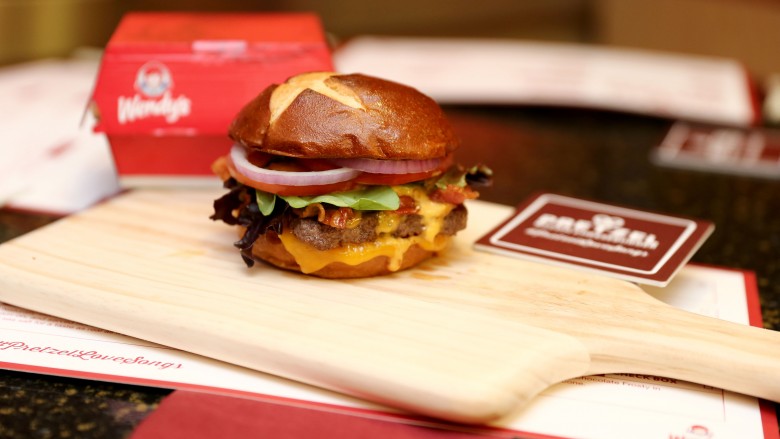Foods That Will Give You Bad Skin
When it comes to acne, we know it's caused by things we face in our everyday lives. Sweat, dirty pillowcases, and rogue hair product are just a few of the culprits of random breakouts. And wrinkles, of course, are an inevitable side effect of aging. But it's not only what touches our skin on the outside that can cause it to flare up. In fact, the food you put inside your body is just as important. If you have an expert skincare regimen but find your skin still isn't top-notch, it could be you're consuming all the wrong things. Find out the foods that can ruin your skin — and avoid them as much as you can!
Dairy can clog your pores
If you can't live without that glass of chocolate milk every morning or cheese is basically your favorite food group, I've got some bad news: all that dairy is not doing your body good. In fact, it could be the cause of your breakouts. "Dairy products contain certain hormonal components that can stimulate oil production," Curology founder Dr. David Lortscher told The List. "The more oil your body produces, the more likely it is to clog your pores, which leads to breakouts." Surprisingly, it's skim milk that's most likely to cause acne when compared with other forms of dairy like whole milk, cheese, or yogurt, according to Lortscher. If you're not interested in cutting dairy out completely (because... cheese), he suggests "substituting regular milk for soy or almond milk."
Salt might make your skin puffy
While salt might not directly cause acne, it does lead to other unfavorable outcomes for your skin. Namely, puffy, inflamed skin. "Salt can cause some people to retain water and appear puffy," dermatologist Margaret Ravits told us. The puffiness is especially noticeable in places with thin skin, like your eyes, Heidi Waldorf, director of laser and cosmetic dermatology at Mount Sinai Medical Center in New York City, told Woman's Day. If you just can't give up salt completely, no worries! Add some omega-3 fatty acids (hint: salmon) to your diet to "add hydration to skin and decrease inflammation", dermatologist Whitney Bowe suggested to Total Beauty.
Sugar makes you look older
We know that sugary foods aren't good for our waistlines. Turns out sugar also wreaks havoc on our skin, according to Debra Jaliman, dermatologist, author, and creator of Sea Radiance Skincare. Foods that are high in sugar end up glycating the collagen in your skin, "which stiffens and ages it," she told The List. So when you're debating whether or not to go for that extra cookie, think about the wrinkles and sagginess that come along with it. If you're looking for a sugar kick, try going for fruits that contain natural sugars and the added bonus of antioxidants that help fight signs of aging, dermatologist Whitney Bowe told Total Beauty.
Refined carbs are risky
Why is it that the tastiest foods are always the worst for you? Like carbs, for example. Yep, I'm talking about pasta, white bread, potatoes... the good stuff. According to Dr. David Lortscher, founder of Curology, there are good carbs and then there are bad carbs. It's these bad carbs, foods that are high on the glycemic index, that you want to avoid as much as possible. "High GI foods increase blood glucose levels, forcing our bodies to produce insulin to absorb the extra glucose," Lortscher explained to The List. Higher insulin means inflammation, which "may trigger acne." Lortscher notes that avoiding bad carbs might also help you lose weight by restricting the calories you take in, which in turn can reduce acne breakouts.
Potato chips can age you
While chips are definitely tasty, they're a double whammy when it comes to being bad for your skin. Most chips are covered in tons of salt, which we now know is a major factor in skin inflammation. They're made from potatoes, which means they also fall into the refined carb category and are likely to make you break out. This means that bag of chips is just a skin disaster waiting to happen. Think "fine lines, wrinkles, and aged appearance," Patricia Harris, dermatologist and author of The Sugar Detox, told Prevention.
Butter brings on the wrinkles
While studies on how butter affects your overall health actually differ, one thing is for sure: butter is a dairy product, and we've learned how dairy negatively impacts your skin by causing excess oil production. But not only does butter contain acne-causing properties, it also puts you at risk for wrinkles. In a 2001 study in the Journal of the American College of Nutrition, those with a higher intake of butter and other dairy products experienced more skin wrinkling than those who consumed healthier food options like vegetables and olive oil. So the next time you're cooking in a skillet or looking for something to liven up your (whole wheat, never white!) bread, opt for olive oil instead of a stick of butter.
Shellfish can cause acne
At first thought, protein-packed fish and shellfish might seem like a healthy option (except when cooked in butter, of course). However, shellfish is "naturally high in iodine," dermatologist Neal B. Schultz told Shape, "and a diet with too much of this element can lead to acne." Judith Brown, author of Every Woman's Guide to Nutrition, explained to Livestrong.com, "High iodine levels can inflame your skin, clog your pores, and cause the appearance of red splotchy skin." While your natural instinct might be to avoid shellfish completely, Schultz clarified that's not necessary, advising instead "that people who are particularly acne-prone consume these foods a couple of times a month rather than a couple of times a week."
Red meat has pros and cons
Like shellfish, red meat seems like a food that does your body more good than harm. While it's full of the protein your body needs to survive, it can also cause acne and lead to premature aging. In an interview with StyleCaster, founder and medical director of Reflections Center for Skin and Body Dr. Mitch Chasin explained that "red meat contains a high level of carnitine which can harden blood vessel walls, causing premature aging." Red meat has also been linked to increased levels of testosterone in the body, which can "lead to more skin cells growing, and more sebum being produced," according to dermatologist Dr. Ross Perry of the Cosmedics Skin Clinic in London. "This can, in turn, block pores and causes acne," Perry told The Daily Mail.
Alcohol will leave your skin suffering
Sure — technically, alcohol isn't a food. However, its effect on your skin is so notable that it deserves a space on this list. "Alcohol causes dehydration," board certified dermatologist and medical director and founder of California Dermatology Specialists Dr. Eric Meinhardt explained to The List — a fact anyone who's woken up after one (or, y'know... five) drinks too many knows all too well. While it may seem like your mouth and throat are the only things that need water after a long night out, your skin is also suffering. As your skin dries out, you're more prone to wrinkling, dryness, and flaking, says Meinhardt. "Additionally, toxins and free radicals created by the alcohol lead to collagen damage," he notes, "leading to wrinkles and less vibrant skin."
What you should eat instead
So now that we've covered everything that has a negative impact on your skin, you're probably thinking, "Well, what can I eat?" When you're looking for foods that are good for your skin, Debra Jaliman, dermatologist, author, and creator of Sea Radiance Skincare, notes that any fresh food that is "richly colored" is your best bet. "These are highest in antioxidants," she explained to The List. "So for example, choose a red grapefruit over a white grapefruit, a red pepper over a yellow pepper," and so on. Luckily, keeping a good skin care regimen can help keep many adverse effects from these foods at bay, so you don't have to totally give up any of your favorite guilty pleasures for the sake of smooth, clear skin.

